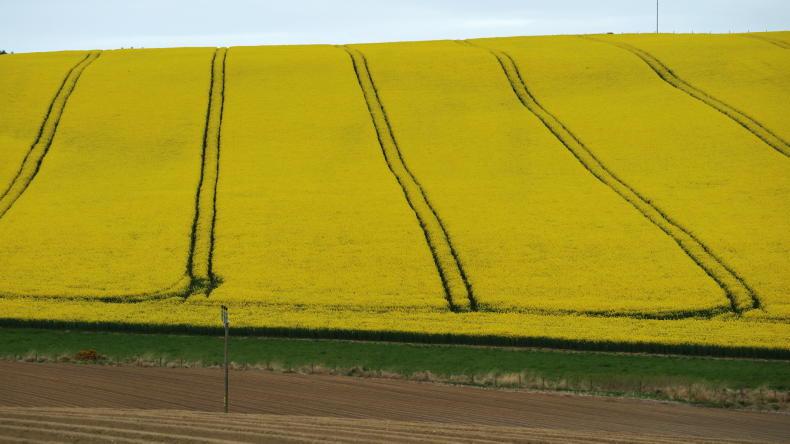IT might make the drive to work prettier for some come April and May, but rapeseed is causing considerable issues for horses. The area of oil seed rape grown in Ireland in 2021/2022 has increased by as much as 44%.
Rapeseed is used in cattle feed, cleaning products, cooking oils and bio diesel and has grown rapidly in popularity over recent years. Unfortunately, rapeseed reactions can cause horses to breathe faster, struggle to exhale and they may be off their food and lethargic. In many cases, the horse’s lungs will become inflamed which can make them more susceptible to viral and bacterial infections. Psychological symptoms can include a lack of concentration and possible behavioural problems.
Displaced
Trainers Andrew McNamara and Harley Dunne have both been forced to move from their yards this spring to avoid the problematic effects of rapeseed on their horses in training. Dunne, of Co Wexford, is now facing the mighty challenge of training 36 point-to-point horses from fields, having had previous problems with rapeseed. Andrew McNamara is based in Co Meath and today runs Enjoy The Dream in the Grade 1 Ballymore Champion Four-Year-Old Hurdle at Punchestown. Enjoy The Dream is just one of the horses displaced because of rapeseed, he told TheHorseIE recently: “When the rapeseed season does kick off and it starts to flower, we’ve found a dramatic loss of form for the horses.
“Overnight horses started to completely lose their way and it’s hard to believe how much of a dramatic change it can make. You go from a horse winning one week to pulling up a week later.
“It’s becoming a serious welfare issue at this stage.”
Solution
In terms of what can be done, it’s not looking likely to be a quick fix. The Irish Equine Centre’s Alan Creighton, head of environment and nutrition, told The Irish Field this week: “There is no easy solution to the problem of rapeseed. The Irish Equine Centre has joined forces with the Irish Racehorse Trainers Association to gather the facts of each individual case and to try to find an answer.”
It’s not just racehorses suffering, it’s becoming a common complaint at this time of year for many horse owners. Unlike humans, horses that are allergic to rapeseed will often show symptoms that are more similar to that of flu, not like the symptoms humans get that are more related to just the sinus and nasal areas.
Disasterous
Dr Joe Collins MVB PhD told The Irish Field: “Flowering season for oil seed rape has long been considered by vets a high-risk period for horses prone to two conditions of significance, one affecting the upper respiratory tract and one the lower, the key clinical sign being head-shaking or breathlessness respectively. Whether either is genuinely an allergy or simply an irritant certainly interests vets, but owners of individual afflicted horses just want relief from the irritating condition these represent.
“Pollen breathed in and trapped in the sinuses and nasal cavities of susceptible equids irritates the sensitive lining within and underlying nerves leading to a Tourettes-type head twitch - particularly disastrous if one is doing dressage. Pollen inhaled deeper down irritates the airways causing mucus production, breathlessness and loss of athletic performance - the galloping racehorse runs out of breath. Repeated exposure year upon year sets up the potential for an allergic rhinitis (‘hay-fever for horse’) or COPD (‘asthma for equines’) recurring every spring.”
Collins suggests the common and logical approach to such conditions includes preventing exposure to the irritant: stabling, nasal masks, crop rotation but admits all are tried with varying success. “Medication can be an option including cortisone and other products applied to the affected area (via the nose) or systemically, however drug testing rules for competition horses may be an issue here. More drastic action has sometimes been employed including directly targeting affected facial nerves and as we’ve seen recently, moving away from rapeseed fields.”
